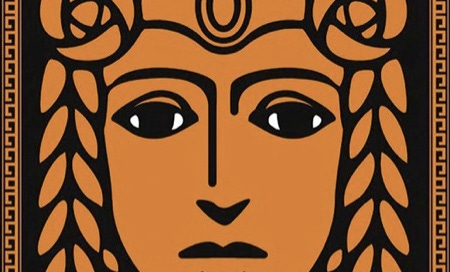You think you know Circe. She’s that minor enchantress who pops up in Homer’s The Odyssey, turns men into pigs, and then fades into mythic obscurity.
But Madeline Miller drags her out of the shadows and throws her center stage. Miller's Circe says:
"Humbling women seems to me a chief pastime of poets. As if there can be no story unless we crawl and weep."
This novel is a bold, lyrical reimagining of the ancient tale, where the infamous witch finally gets to tell her own story—on her own terms.
If you’ve ever wondered what it’s like to be an immortal misfit, cast out by your godly family, and left to fend for yourself on a deserted island, well, here’s your answer.
Not Your Greek Professor's Odyssey
Drawing from Homer's The Odyssey, Ovid's Metamorphoses, and various other classical sources, Miller isn’t just retelling mythology. She’s gutting it, stitching it back together, and breathing life into something heartbreakingly real.
Circe, daughter of the sun god Helios and nymph Perse, is born an oddity. She lacks her family’s power, their cruelty, their effortless radiance.
The gods dismiss her. Humans fear her. Even her own father barely tolerates her.
"When I was born, the name for what I was did not exist."
But when she discovers her talent for witchcraft—an ability that sets her apart from both mortals and deities—she’s exiled to the island of Aiaia.
"That is what exile meant: no one was coming to save us, to spare us from the consequences of our choices."
There she hones her craft, survives betrayals, and rubs shoulders with some of mythology’s biggest names.
Where the Magic Works
Miller’s great triumph is making this goddess achingly human - a woman battling fate, love, and the suffocating expectations of those who think they know her better than she knows herself.
Her relationships—whether with the cruel Hermes, the tragic Daedalus, or the ever-clever Odysseus—are not the stuff of fairy tales. They’re complex, filled with longing, betrayal, and painful lessons.
Circe isn’t a goddess who lords over mortals; she struggles, she falters, she learns.
Her magic isn’t just a set of cool powers—it’s a craft, something she painstakingly builds over time.
The novel revels in the small details of her witchcraft: the grinding of herbs, the mixing of potions, the delicate balance between power and consequence.
Miller also nails the character arcs.
Odysseus is not the dashing hero of legend, but a man weighed down by his own cunning.
Circe’s growth—from a neglected child to a force of nature—is so well-executed you almost don’t realise how much she’s changed until you look back and see the girl she used to be.
"It is a common saying that women are delicate creatures, flowers, eggs, anything that may be crushed in a moment's carelessness. If I had ever believed it, I no longer did."
Where It Falters
For all its poetic beauty, Circe sometimes lingers too long in its own melancholy. You’ll spend a lot of time in Circe’s thoughts—her regrets, her musings, her solitude.
And while that introspection is powerful, it occasionally slows the pace to a crawl, perhaps mirroring Circe's exile a bit too effectively.
If you’re looking for action-packed mythic battles, you won’t find them here. This is more Mrs. Dalloway with magic than Percy Jackson for adults.
Also, the gods themselves feel strangely muted.
Helios, Athena, and the rest of Olympus are certainly formidable, but they lack the fire and chaos of traditional Greek mythology.
Miller’s deities are cold, distant, and eerily bureaucratic—more like cruel aristocrats than the thunderous forces of nature they’re supposed to be.
Did the Praise Outshine the Flaws?
Absolutely. Circe was a phenomenon. It arrived at the perfect social media moment, riding the wave of renewed interest in feminist retellings of classical myths.
It became a New York Times bestseller, a darling of book clubs, and a frequent presence on “best of the year” lists.
The novel won the 2019 Indie Choice Award and was shortlisted for the Women's Prize for Fiction.
But not everyone was sold. Some found its slow pacing frustrating. Others thought Miller leaned too hard into modern feminist themes, sanding down the rougher, more dangerous edges of the original myths.
The Final Verdict
Circe is more than just another Greek myth retelling - it's a meditation on power, mortality, and the cost of choosing one's own path.
Miller has created something rare: a book that works both as a compelling narrative for newcomers to Greek mythology and a complex reinterpretation for those deeply familiar with the source material.
In Miller's hands, Circe becomes more than a footnote in someone else's story.
Read Next:
If Circe left you spellbound, pick up Pat Barker’s The Silence of the Girls —a fierce, gut-wrenching take on Homer’s other epic, The Iliad, through the eyes of Briseis, another woman overshadowed by mythic men.
On the non-fiction side, Mary Beard’s Women & Power digs into how classical literature shaped modern ideas of gender and authority.
If you are completely new to Homer’s epics and want witty, accessible prose retellings, try Stephen Fry’s Troy and The Odyssey.
And, of course, there's Miller's own The Song of Achilles.




